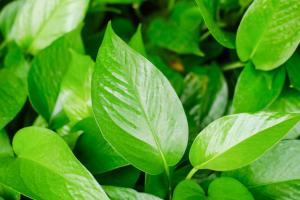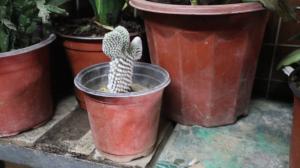Introduction
Black walnut trees are beautiful hardwood trees that provide shade and produce delicious nuts. However, these trees secrete a toxin called juglone, which can prevent the growth of some plants. This toxin can make it difficult for gardeners to find suitable plants to grow under black walnut trees. In this article, we will explore what plants can grow under black walnut trees and how to create a thriving garden in the presence of these trees.
Understanding Juglone
Juglone is a toxin produced by black walnut trees that can affect the growth of some plants, particularly those in the nightshade family, such as tomatoes and peppers. The toxin is mainly found in the leaves, bark, and nut hulls of the tree. When these parts of the tree decay, they release juglone into the soil. The toxin can remain in the soil for up to two years after the tree has been removed. Therefore, it is important to understand the types of plants that can tolerate juglone and thrive under black walnut trees.
Plants That Can Grow Under Black Walnut Trees
Some plants are tolerant of juglone and can grow happily under black walnut trees. These include:
1. Ferns: Ferns are a great choice for growing under black walnut trees as they do not seem to be affected by the toxin. They thrive in the shade and can add a beautiful touch of greenery to the garden.
2. Hostas: Hostas are a popular choice for shady areas of the garden and are also tolerant of juglone. They have large, beautiful leaves and come in a variety of sizes and colors.
3. Wildflowers: Some wildflowers, such as goldenrod and black-eyed Susan, can tolerate juglone and can add a pop of color to your garden. These flowers also attract bees, butterflies, and other pollinators.
4. Creeping Phlox: Creeping phlox is a low-growing perennial that produces beautiful flowers in the spring. It is also tolerant of juglone and can add a splash of color to the garden.
5. Sedges: Sedges are a type of grass that can tolerate juglone and grow well under black walnut trees. They come in a variety of textures and colors and can add interest to your garden.
6. Shrubs: Some shrubs, such as the bottlebrush buckeye and the American hazelnut, can grow happily under black walnut trees. They provide shade and can add beauty to your garden all year round.
Growing Plants Under Black Walnut Trees
When planting under black walnut trees, it is important to prepare the soil properly. The soil should be well-draining and rich in organic matter. Incorporating compost into the soil can help to improve its texture and fertility. It is also important to water plants regularly, particularly during dry spells.
To prevent the growth of weeds and other unwanted plants, consider adding a layer of mulch to the soil. This will help to retain moisture in the soil and prevent the growth of unwanted plants.
Finally, when choosing plants to grow under black walnut trees, it is important to research the specific plant's tolerance to juglone. While some plants are tolerant of the toxin, others may struggle to grow in its presence.
Conclusion
In conclusion, with some careful planning and preparation, it is possible to create a thriving garden under black walnut trees. By choosing plants that are tolerant to juglone, preparing the soil properly, and providing regular water, gardeners can create a beautiful and healthy garden in the presence of these majestic trees. Happy gardening!

 how many times do yo...
how many times do yo... how many planted tre...
how many planted tre... how many pine trees ...
how many pine trees ... how many pecan trees...
how many pecan trees... how many plants comp...
how many plants comp... how many plants can ...
how many plants can ... how many plants and ...
how many plants and ... how many pepper plan...
how many pepper plan...
































